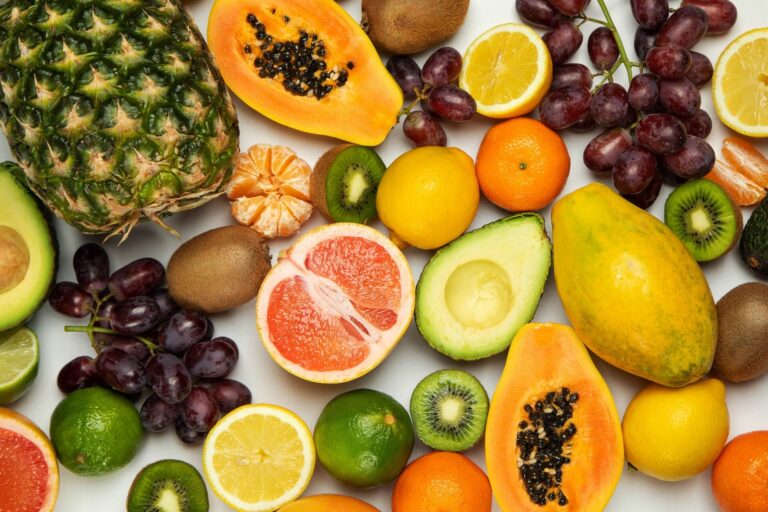
What is a Fruit Diet?
A fruit diet, as it says by itself, is a diet that restricts all other foods except fruits. It excludes all animal products and dairy. The main point is many people consume raw fruits instead of cooking them and exploring varieties.
People also prefer having some vegetables, seeds, and of course dry fruits and nuts in a limited quantity.
Foods such as grains, legumes, tubers, etc. are strictly limited or eliminated in some cases. Cooked food is restricted, even cooked fruit is restricted as said earlier.
There are people who follow a strict diet based on some cultures and personal ethics related to spirituality. That means some people do not consume the fruits that are being plucked/picked, they prefer only the fruits which are fallen onto the ground. These people also do not consume seeds, because they have the ability to grow into a plant.
The fruit diet is an incomplete diet in today’s life because it falls short of many essential nutrients, which are required in daily life. So, it can cause malnourishment.
Benefits of Fruit Diet

1. Fruits are rich in fiber that helps reduce cholesterol levels and encourage bowel movements. Apples, pears, blackberries, and raspberries are rich in dietary fiber.
2. Fruits that are rich in vitamin C help keep teeth and gums healthy and help increase immunity. Having fruits such as oranges, red peppers and raspberries will help do so.
3. Other fruits such as bananas, guavas, cantaloupe, and mangoes are high in potassium which helps maintain healthy blood pressure and regulate fluid balance in the body.
4. Berries, black plums, prunes, and all berries are examples of fruits rich in antioxidants. Antioxidants keep the production of free radicals at a limit which helps protect your skin and fight any disease.
5. Fruits that are high in folates such as oranges, mangoes, and tropical fruits are high in folate which helps the body to produce red blood cells. Folate also supports healthy fetal development.
Disadvantages of Fruit Diet

Many nutrients that are important for overall health are lacking in a fruit diet such as:
1. Protein
2. Fat
3. Calcium
4. B vitamins
5. Omega-3 fatty acids
A fruit diet is highly restrictive in nature, so there is a high chance of malnourishment. Your body might even go into starvation mode. It means that the metabolism slows down as it attempts to hold onto your nutritional stores and conserve energy.
It also contains high amounts of sugar, even though it’s a natural source. This may affect people with diabetes, prediabetes, insulin resistance, or polycystic ovarian syndrome. So, these people cant go for it.
Anemia, fatigue, and a weak immune system can also be caused. A lack of calcium can lead to osteoporosis over time.
Limiting your fruit intake to half and adding protein sources, such as nuts or vegetarian supplements, may help balance out the nutritional deficits present in the fruit diet.
Know more about fruit diet disadvantages
Important tips on consuming fruits

There’s a popular belief that healthy food can be eaten at any time. But, experts say this is not true.
Fruit should be eaten between meals, not along with lunch or dinner because fruits slow down digestion, says Luke Coutinho, doctor of alternative medicine and founder of the health start-up Pure Nutrition.
If you want to eat healthy food, what matters most is the quantity of food absorbed by your body. Tea and coffee have substances like tannin and caffeine that hinder the absorption of the nutrients in fruits like bananas and chikus.
In fact, fruits are best absorbed on an empty stomach, early morning, as a snack between two meals, or before or after a workout to refuel your body, says Luke Coutinho.
The best time to have fruits, if you aim for weight loss and make sure your body absorbs the minerals and vitamins efficiently is 30 minutes before a meal. The digestive enzymes released in the stomach by having fruits help you digest the following meal.
Also, do not have citrus fruits immediately after a meal as it will increase acid formation in the stomach, causing heavy stomach and digestive problems like acidity, and minimizing nutrient absorption.
Related blogs:
